KATHMANDU: As part of the beautification campaign, the Kathmandu Metropolitan City (KMC) planted thousands of plants and flowers on the roadside, mainly in the Tinkune area, in view of the two-day state visit of Chinese President X Jinping.
Barely one day after President Xi left Kathmandu where these green plants and colorful flowers were thriving on the roadsides, have been either removed or started to dry.
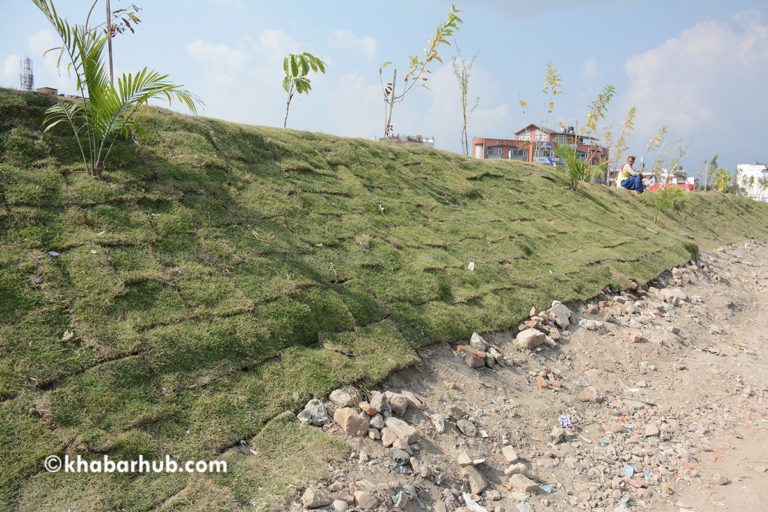
In fact, they were not paid attention since then.
The plants at Tinkune look brittle now. Earlier, for two days, Tinkune looked like a native plant habitat – that looked beautiful and buzzing with life.
The flex board that was hung to cover the arch network bridge at Babarmahal has been removed by the Digital Printing and Shining Nepal. “We removed the flex boards from Tinkune, Babarmahal, and Teku on Sunday evening — the day when the Chinese President left,” a worker told Khabarhub, adding, “We did it as per the instruction.”
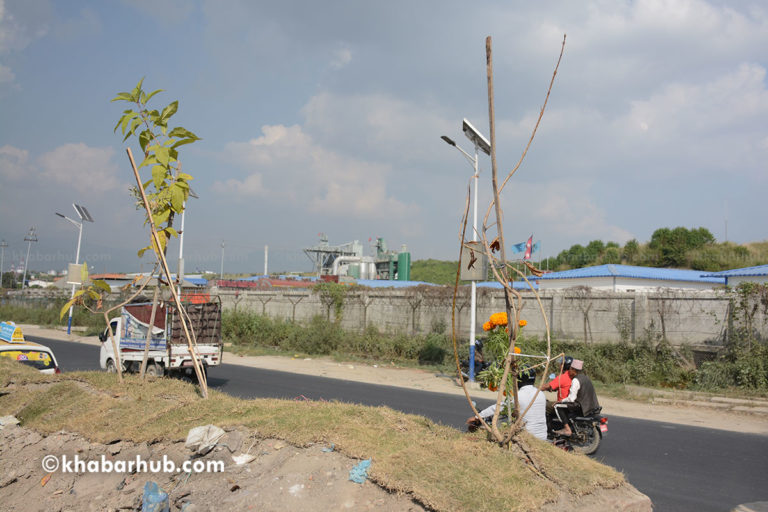
The KMC had given the responsibility to beautify Tinkune and other areas to three nurseries for the high-level visit.
When asked why those plants have been deserted, Chief of the Environment Department at KMC, Hari Kumar Shrestha told Khabarhub that they are making necessary efforts to plant more greenery in Tinkune to maintain its beauty.
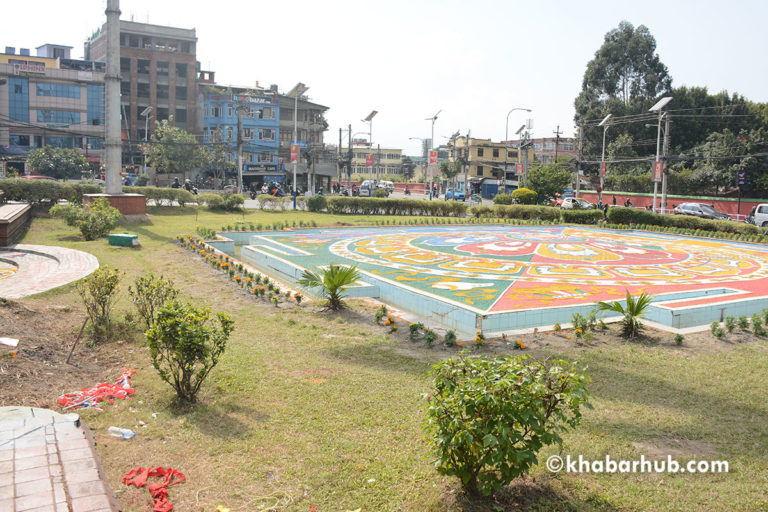
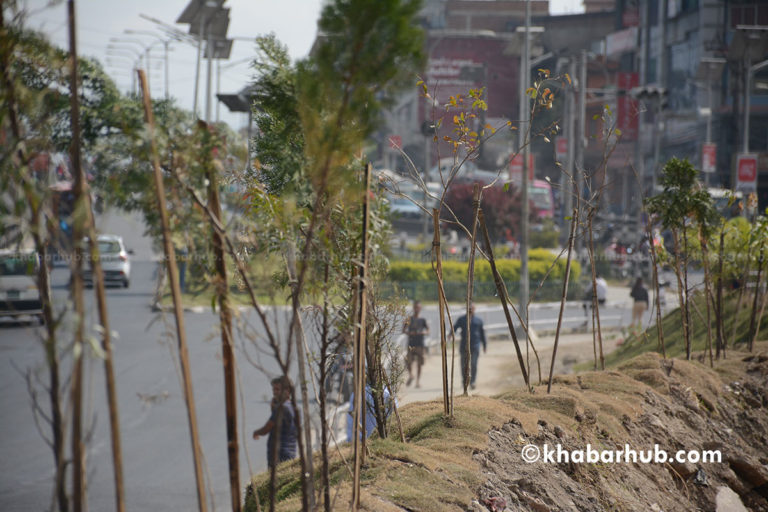


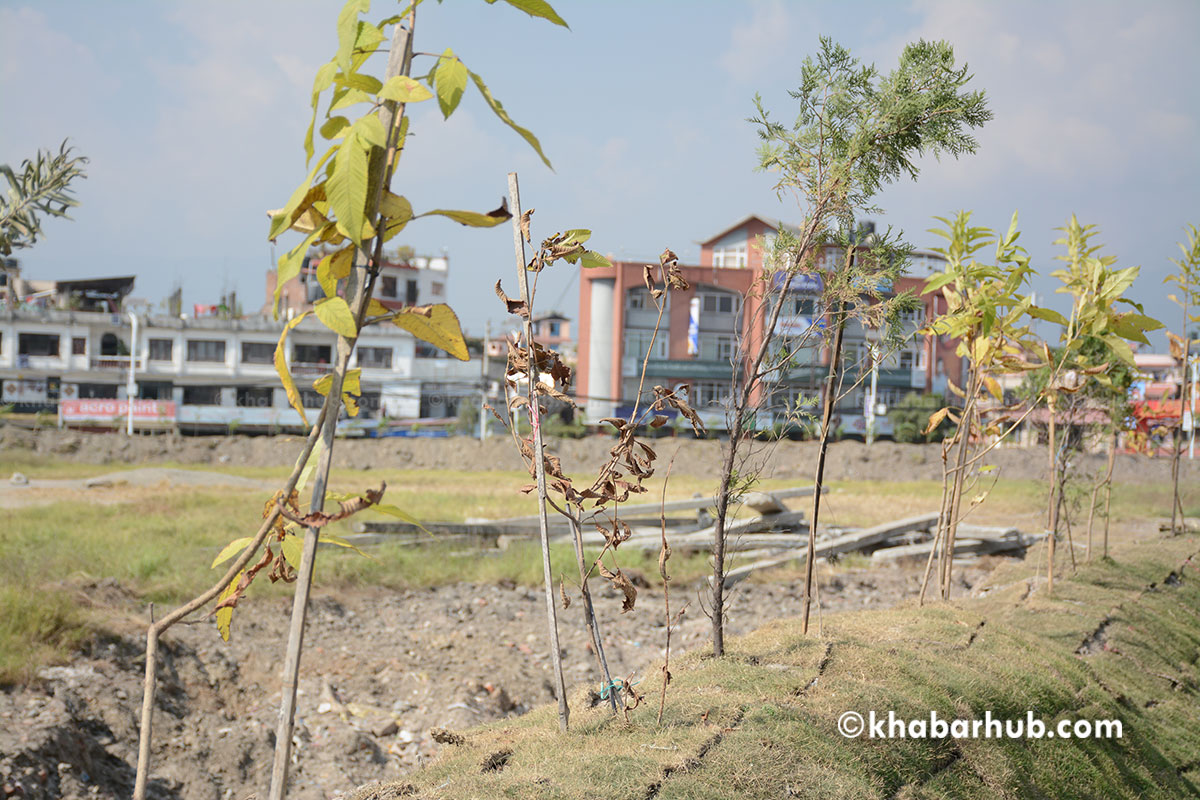


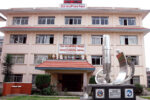


Comment